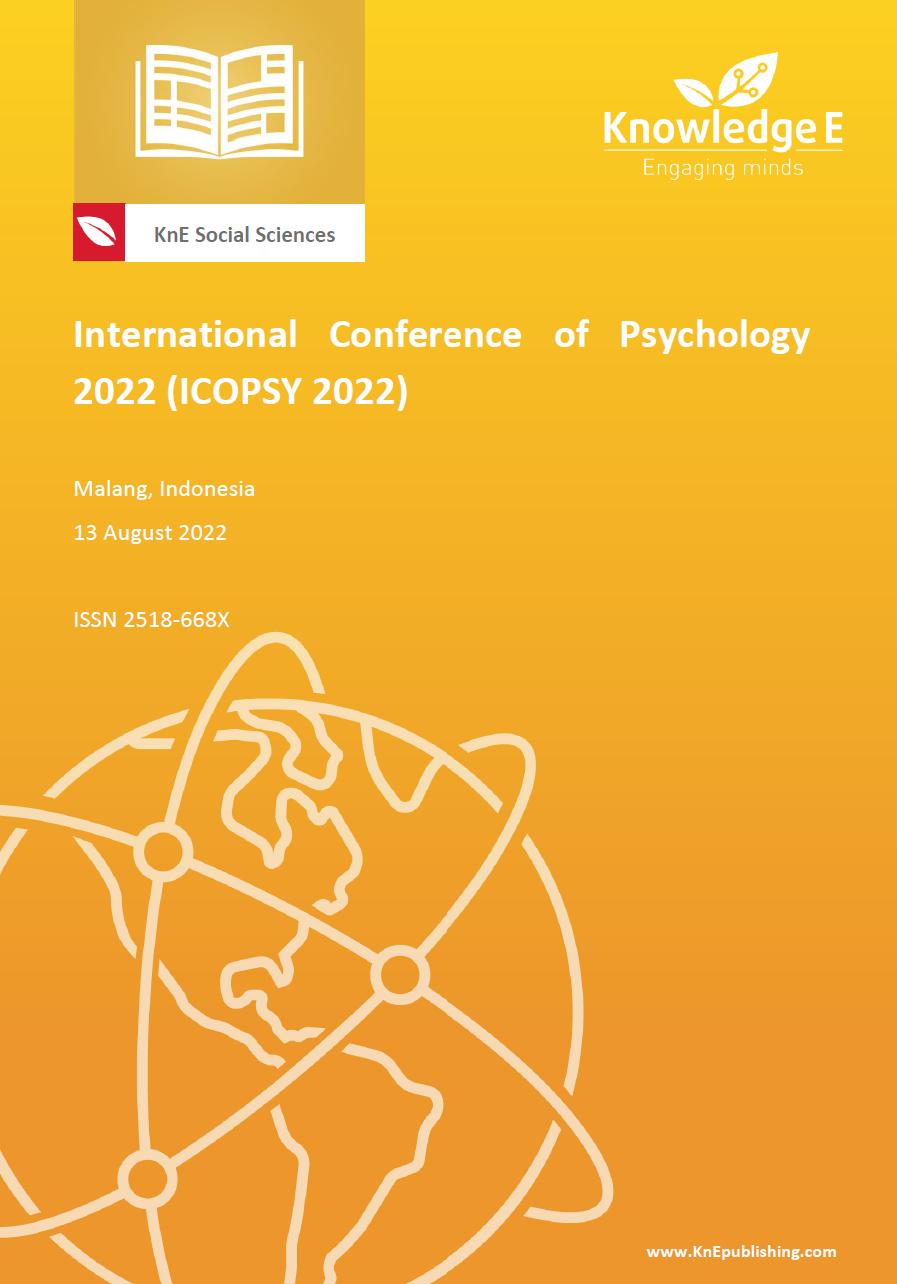Training on How Students Choose Their Academic Career Paths
DOI:
https://doi.org/10.18502/kss.v7i18.12403Abstract
The lack of knowledge that students face in choosing their careers is one of the issues for those who want to continue their education. Vocational High School (SMK) graduates hope to get a job after graduation rather than continue their study. However, it does not preclude the possibility that they will continue their studies at the higher education level. Therefore, this training aims to enhance participants’ capacity to plan their career paths, particularly for higher education. The first step in the training process is distributing the material, followed by a workshop. A lecture introduces the subject matter, and a workshop setting involves participatory action research. The evaluation’s findings demonstrate that students’ knowledge and skills improve due to the training received, and they can better comprehend the career path they will eventually pursue.
Keywords: career choice, advanced studies, vocational high school
References
[2] Komara IB. Hubungan antara Kepercayaan Diri dengan Prestasi Belajar dan Perencanaan Karir Siswa SMP. Psikopedagogia Jurnal Bimbingan dan Konseling. 2016;5(1):33–42. https://doi.org/10.12928/psikopedagogia.v5i1.4474
[3] Malgwi C, Howe MA, Burnaby PA. Influences on students’ choice of college major. Journal of Education for Business. 2005;80(5):275–282. https://doi.org/10.3200/JOEB.80.5.275-282
[4] Ali SR, Saunders JL. The career aspirations of rural appalachian high school students. Journal of Career Assessment. 2009;17(2):172–188. https://doi.org/10.1177/1069072708328897
[5] Rizdania R. Sistem Pendukung Keputusan (SPK) pemilihan jurusan perguruan tinggi menggunakan algoritma fuzzy mamdani. Jurnal Tecnoscienza. 2021;6(1):30–42. https://doi.org/10.51158/tecnoscienza.v6i1.529
[6] Rufaidah A. Pengaruh intelegensi dan minat siswa terhadap putusan pemilihan jurusan. Faktor: Jurnal Ilmiah Kependidikan. 2015;2(2):139–146. https://journal.lppmunindra.ac.id/index.php/Faktor/article/view/379
[7] Setiawan A. Keterbukaan diri dan kemampuan pemecahan masalah. Jurnal Psikologi. 2019;6(1):68–80.
[8] Prabowo W, Yusuf M, Setyowati R. Pengambilan keputusan menentukan jurusan kuliah ditinjau dari student self efficacy dan persepsi terhadap harapan orang tua. Jurnal Psikologi Pendidikan & Konseling: Jurnal Kajian Psikologi Pendidikan Dan Bimbingan Konseling. 2019;5(1):42–48. https://doi.org/10.26858/jppk.v5i1.7460
[9] Widyastuti N, Widyowati A. Hubungan antara locus of control internal dengan kematangan karir pada siswa SMKN 1 Bantul. Humanitas. 2015;12(2):82–89. https://doi.org/10.26555/humanitas.v12i2.3835
[10] Husna RK, Taufik T, Netrawati N. Hubungan dukungan sosial orangtua dengan minat pilihan karir siswa. Proceedings Internasional Counseling and Education Seminar; 2017. 170–180. http://repository.unp.ac.id/11214/1/REZI%20KHATUL%20HUSNATAUFIK- NETRAWATI.pdf
[11] Juwitaningrum I. Program bimbingan karir untuk meningkatkan kematangan karir siswa SMK. Psikopedagogia Jurnal Bimbingan Dan Konseling. 2013;2(2):132–147. https://doi.org/10.12928/psikopedagogia.v2i2.2580
[12] Lestari D, Supriyo S. Kontribusi minat jurusan, kualitas layanan informasi karir, dan pemahaman karir terhadap kemampuan mengambil keputusan karir. Jurnal Bimbingan Konseling. 2016;5(1):47-54. https://doi.org/10.15294/jubk.v5i1.18520
[13] Meyer MS, Cranmore J, Rinn AN, Hodges J. College choice: Considerations for academically advanced high school seniors. Gifted Child Quarterly. 2021;65(1):52– 74. https://doi.org/10.1177/0016986220957258
[14] Nelissa Z, Astuti S, Martunis M. Identifikasi faktor yang mempengaruhi siswa dalam proses pemilihan jurusan pendidikan lanjutan (Studi pada siswa kelas XI SMA Negeri 5 Banda Aceh). Jurnal Penelitian Pendidikan Indonesia. 2018;4(1):78–83. https://doi.org/10.29210/02018198
[15] Rahmad U. Analisis referensi siswa sekolah menengah kejurusan dalam memilih program studi di perguruan tinggi. Jurnal Manajemen Dan Supervisi Pendidikan. 2018;2(2):147–152. https://doi.org/10.17977/um025v2i22018p147
[16] Tirta SD, Malfasari E, Febtrina R, Herniyanti R. Faktor-faktor yang mempengaruhi siswa SMA dalam memilih jurusan kesehatan di perkuliahan. Jurnal Keperawatan Jiwa. 2021;9(2):381–390. https://doi.org/10.26714/jkj.9.2.2021.381-390
[17] Gumiwang R. Mengapa Siswa Antre SBMPTN Demi Mimpi Kuliah di Kampus Negeri? Tirto.id. 2018, March 13. https://tirto.id/mengapa-siswa-antre-sbmptn-demi-mimpikuliah- di-kampus-negeri-cFZF
[18] Tabita A, Halim S. Faktor-Faktor yang mempengaruhi siswa SMA dalam memilih perguruan tinggi. Prosiding Seminar Nasional Teknik Industri UK Petra 2014. 36– 40. 2014. http://repository.petra.ac.id/17130/1/Publikasi1_94032_2127.pdf
[19] SIMAK Universitas Indonesia. Daftar program studi S1 Reguler TA 2022. 2022. https://simak.ui.ac.id/reguler.html
[20] Hidayati NW. Pengaruh layanan informasi studi lanjut terhadap perencanaan karir siswa. Edukasi: Jurnal Pendidikan. 2014;12(1):94–101.
[21] Nadiarenita AA, Muslihati M, Hotifah Y. Pengembangan paket bimbingan perencanaan studi lanjut dengan model creative problem solving bagi siswa sekolah menengah atas. Jurnal Kajian Pratiwi M, Purnamasari A, Prasetyo I. Efektivitas pemberian konseling minat dan bakat untuk meningkatkan kematangan karir siswa SMA di Kota Palembang. E-Dimas: Jurnal Pengabdian Kepada Masyarakat. 2021;12(1):132–136. https://doi.org/10.26877/e-dimas.v12i1.6169

